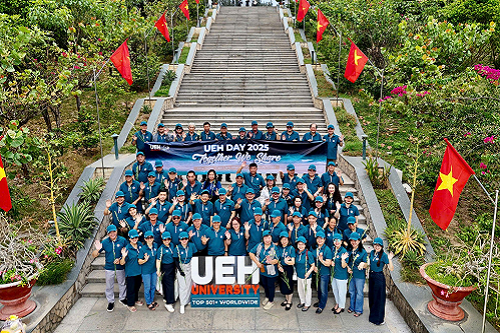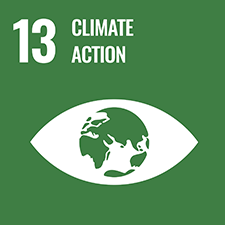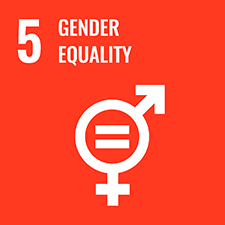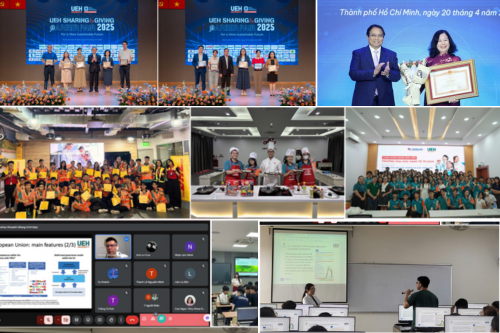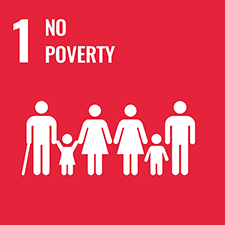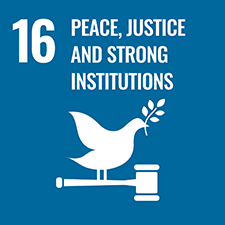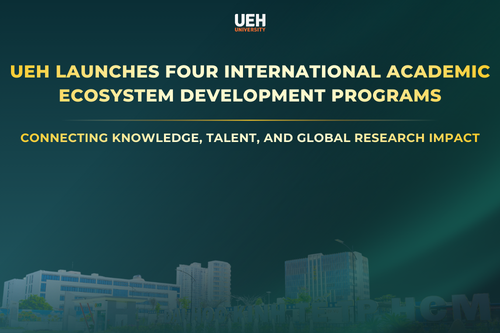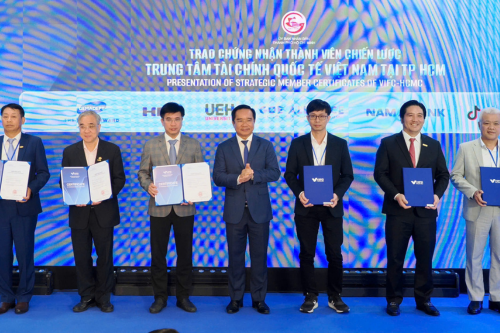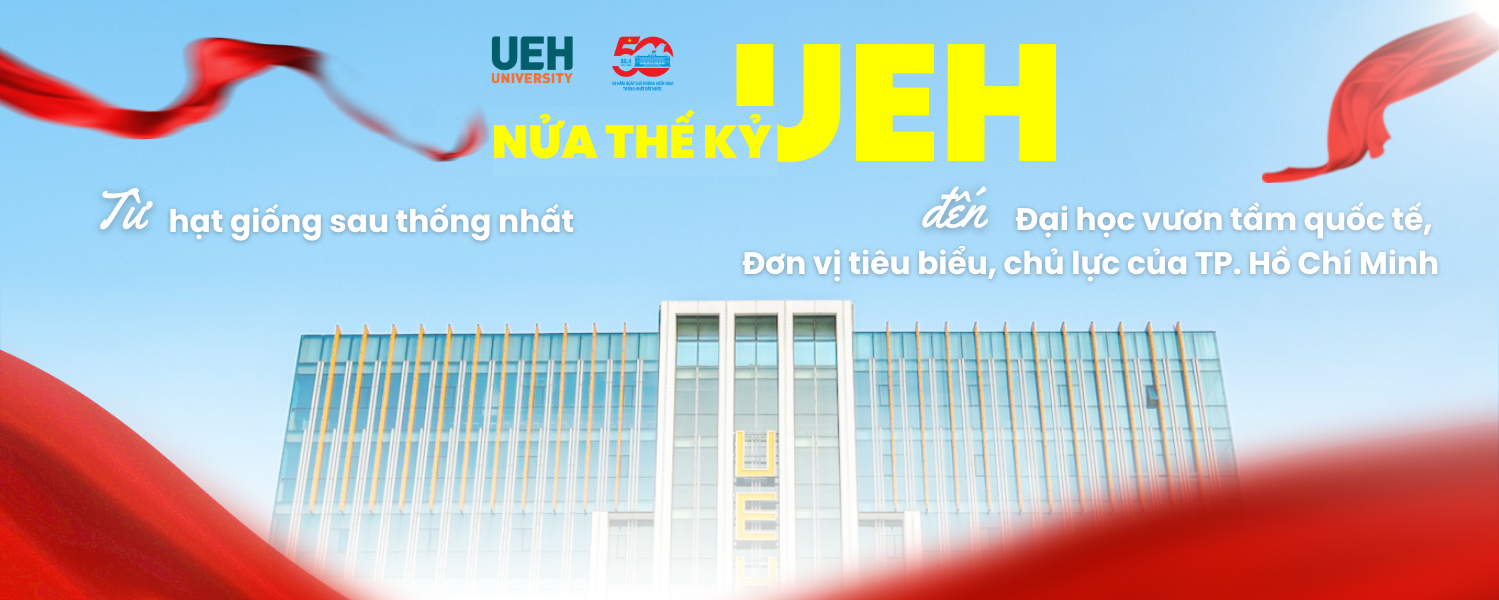
Half a Century of UEH: From a Seed after the Country Unification into a Typical, Key and International-Class University of Ho Chi Minh City
30 Apr, 2025
April 30, 1975 milestone opened a new page in history for the Vietnamese people - the era of independence and unification. In that historical flow, in 1976, University of Economics Ho Chi Minh City (UEH) was officially established, carrying on their shoulders the mission of "building the nation with knowledge". Half a century has passed, UEH has remained determined with their original ideals and grown to become one of the key national universities, with international influence, contributing significantly to the sustainable development of the country.
Born in the days after the country's unification in 1975 and officially established on October 27, 1976, University of Economics Ho Chi Minh City (UEH) started as the first university in the field of economics and management in the South after liberation with an urgent mission: training a team of economic - financial - management officials to serve the reconstruction and the development of the South.
Along with 50 years of national unification and development, UEH high-quality human resource training strategy has been flexibly adjusted according to the needs of each development stage of Ho Chi Minh City in particular and the country in general.
From 1975 - 1976: After the liberation of the South and national unification, in order to quickly stabilize the situation and deploy university and vocational education in the South, the Central Bureau provided guidelines for the entire 1975-1976 academic year on political and ideological education, and reform and reorganization of higher education. After taking over the Law University, the crucial task during this period was to organize the first political activities for the former faculty, staff, and students to re-register. This was also an assembly receiving and continuing training for students of Law, Economics and Business Administration of public and private universities in the South listed as Minh Duc University of Commerce, Van Hanh University, Tri Hanh University, Minh Tri University, Hoa Hao University, Phuong Nam University, Cuu Long University (i.e., these are the first classes A, B, C of University of Economics Ho Chi Minh City before it officially enrolled cohort 1). It can be stated that, in a short period of time, with the efforts and support of the Ministry of University and Vocational Education, Saigon University, the Board of Management of Saigon University of Law completed merging nine former universities of economics and the University of Law into one, gradually bringing into stability, initially renovating, building facilities, forming a preliminary management organization system, building a team of faculty, changing the content, goals, and training programs for the university. It went into operation and the restoration of teaching activities. After that, the university organized admission for cohort 1 of the 4-year regular university system based on the admission announcement of Saigon University published on October 20, 1975, with 516 students enrolled. On October 27, 1976, the Prime Minister signed Decision No. 426/TTg officially establishing the University of Economics Ho Chi Minh City with the mission of training economic human resources to serve the urgent needs of rebuilding the country after the war.
From 1977 to 1985, during this "Foundation Construction" period, UEH played an important role in performing the tasks of training, research, and consulting at the request of the Government, serving the process of rebuilding the country after the war; concurrently, participating in the country's development policy planning activities. Along with the country's renovation policy, UEH had a period of "Renovation and Development" (from 1986 to 2000) which involved human resource training with guidelines for the renovation of Vietnam.
In the period of 2000 - 2010, associated with the country's international and integration policies, UEH "affirmed their brand" as a national key public university, with prestige and quality, gradually integrating into global knowledge through training programs approaching the world standards, scientific research activities associated with increased international publication; and implementing cooperation activities at all levels with policy consulting.
With significant achievements in construction, innovation, development and brand affirmation, UEH carried out the "autonomy and internationalization" in the next 10 years (2011 - 2020) with breakthroughs in comprehensive education and outstanding research activities, implementing the philosophy of "teaching what the world's leading schools are teaching and teaching according to the methods these schools are implementing", affirming the pioneering role of a prestigious university in education and training, scientific research and consulting on economics, management and law in Vietnam and the region. The university has also gradually been included in world rankings listed as: Top 601+ Best Universities in Asia, 1000 Best Business Schools in the world, and the 5th Vietnamese University with the most international publications.
Since 2021, facing the era of strong technology and innovation, UEH has proactively transformed themselves towards a Multidisciplinary and Sustainable University to provide a new generation of human resources with technology, computers, applied engineering, and international integration skills. In 2023, UEH officially became one of 10 higher education institutions in Vietnam operating under the "Multidisciplinary University" model.
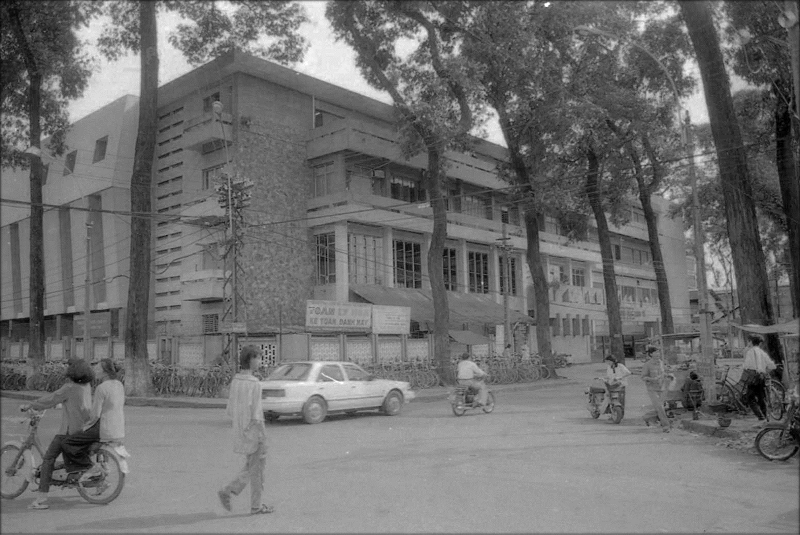
In 1975, UEH quickly taking over the facilities of the University of Law and starting operation
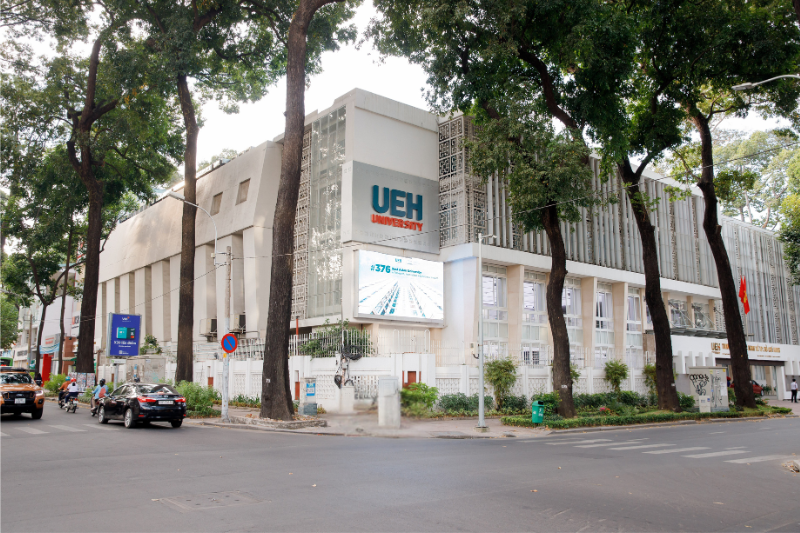
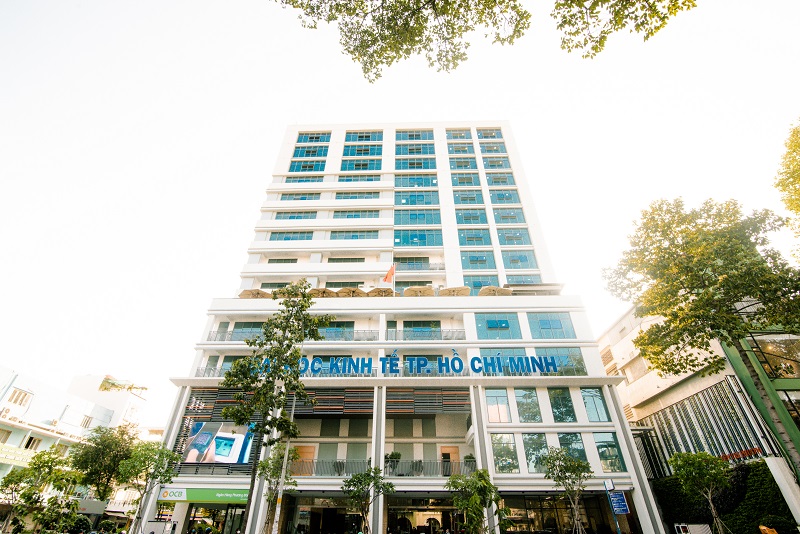
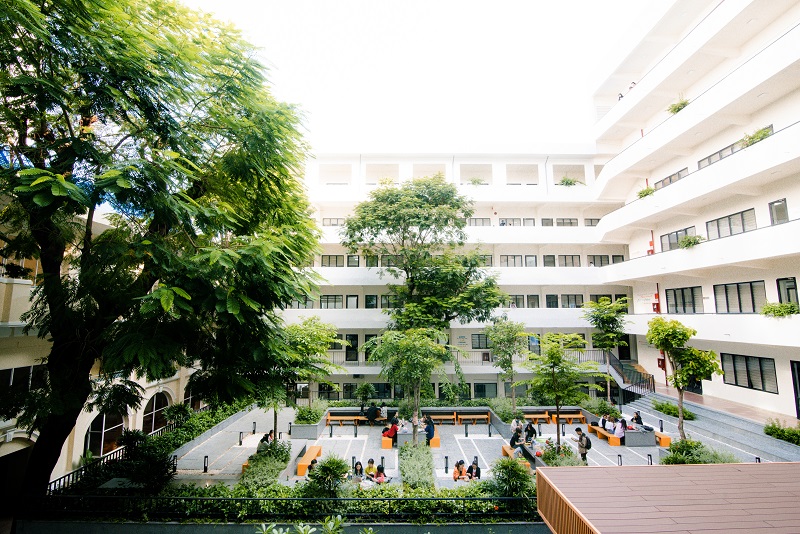
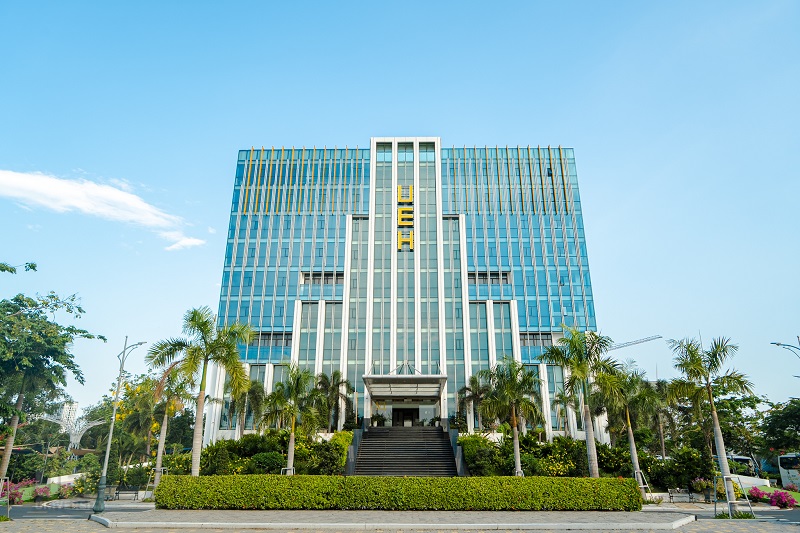
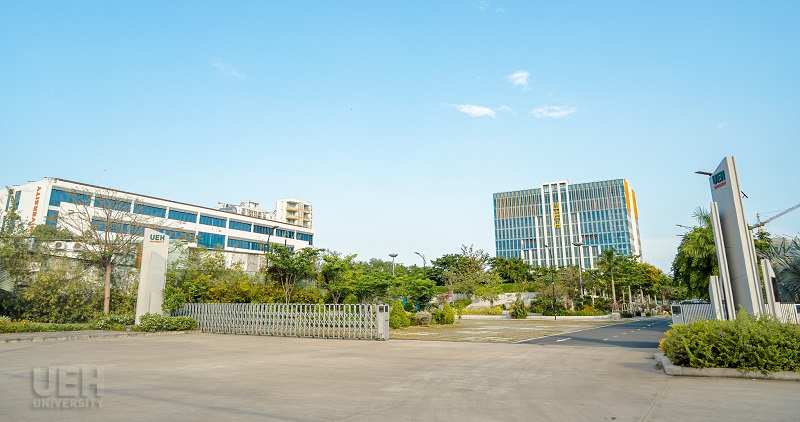
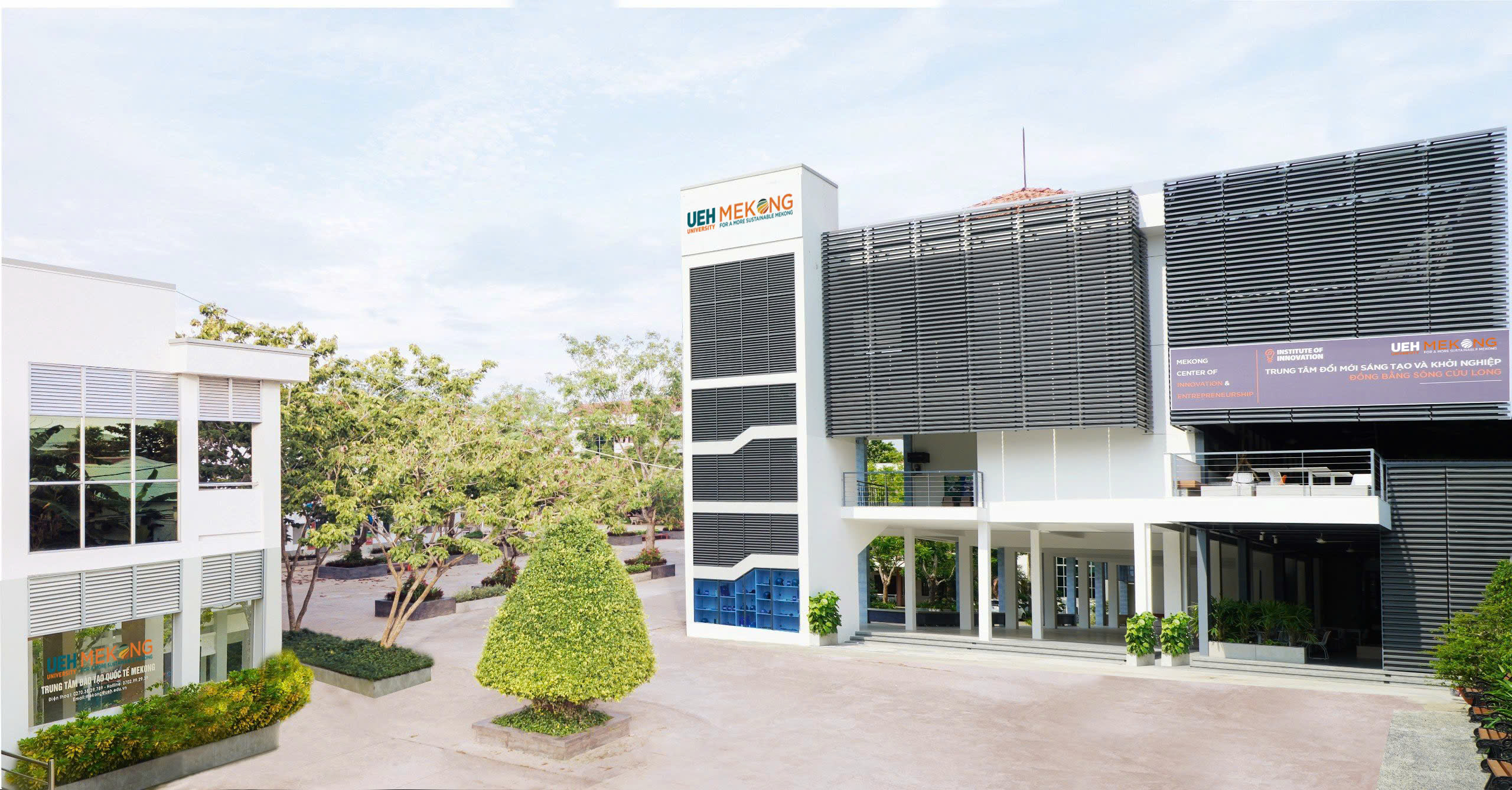
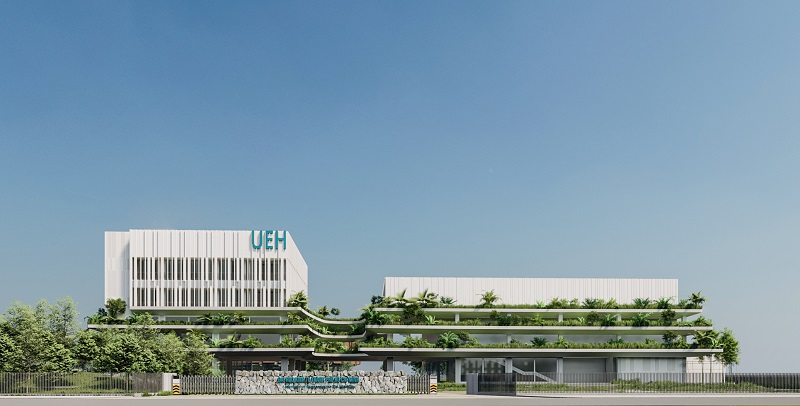
50 years after the liberation, UEH has become a key national university with campuses in Ho Chi Minh City, Vinh Long, and Nha Trang, contributing high-quality human resources to the entire country
In the 50-year journey of working with the City, UEH has affirmed their position as a key national public university, playing the role of a multidisciplinary training and research center providing highly qualified human resources - a decisive factor for the socio-economic development of Ho Chi Minh City, the Southern region, and the whole country.
Being a unit that actively contributes to the process of policy making and socio-economic development of Ho Chi Minh City through applied research topics, cooperation programs with departments, services and enterprises, UEH is a training center for many generations of economic experts, senior managers, and influential researchers in Vietnam and the region.
From the outstanding achievements in construction and development, UEH has been honored as a typical unit with key brands and products of Ho Chi Minh City on the occasion of the 50th anniversary of National Unification (according to Decision No. 1408/QD-UBND dated April 11, 2025), and was awarded noble awards by the President, including First, Second, Third Class Labor Medal; First, Second, Third Class Independence Medal; and The title of Hero of Labor. The architecture and the construction of UEH facilities also contribute to changing the face of the locality where UEH is located, in which, the Nguyen Van Linh campus with a pioneering green university model, promoting the development of the South Saigon area and connecting the Southwest region in the overall development strategy of the City has been recognized by the Ho Chi Minh City People's Committee as a typical construction project of the City on the occasion of the 50th anniversary of the Liberation of the South and National Unification (April 30, 1975 - April 30, 2025), according to Decision No. 1590/QD-UBND dated April 24, 2025.
Along with that are high positions on the world's leading rankings: Top 136 Best Universities in Asia, Top 501-600 World Universities (Times Higher Education 2025), Top 301+ Best Universities in Asia (QS Asia 2024), Top 650 QS World University Ranking Sustainability 2025, and Top 301-400 Universities contributing to the 17 Sustainable Development Goals of the United Nations (THE Impact Rankings 2023).
The achievements of the past journey mean the crystallization of the intelligence, efforts, solidarity and love of all leaders, lecturers, staff, employees, students and learners throughout the periods, and the support of UEH's domestic and international partners along with the values that have been forged over time, that is, "Comprehensive education - Outstanding research - Associated with social needs" in building strategies, always showing “Caring for the team - Social responsibility”, “Solidarity, unanimity, living with love” in UEH’s awareness and culture, “Pioneering innovation - Autonomy - International integration”, “Democracy - Transparency - Fairness” in governance and operation; “Efficiency - Practicality” in the goals of implementing activities.
Remarking on UEH’s 50-year journey, Prof. Dr. Nguyen Dong Phong - Chairman of UEH University Council - emotionally emphasized: “Over the past 50 years, UEH has not only been a place to nurture knowledge but also a flame that maintains the aspiration to contribute to the country. Every step forward of UEH is associated with the innovation of Ho Chi Minh City in particular and a prosperous Vietnam in general. In the future journey, we are committed to continuing to innovate, integrate globally, and pioneer sustainable actions, upholding the mission of serving the community and the country.”
50 YEARS OF CREATION AND CONTRIBUTION TO THE COUNTRY
*Training generations of nation builders
UEH has a training scale of more than 30,000 students of all levels each year. With more than 280,000 alumni working in government agencies, economic groups, international organizations and the startup community, UEH is proud to be home to leaders, experts and pioneering entrepreneurs developing society and the country.
Since 1975, UEH has:
Trained more than 250,000 undergraduate students in the fields of economics, administration, finance, law, technology, design, etc.;
Trained more than 30,000 graduate and doctoral students who have been working at agencies, organizations and enterprises from the central to local levels;
Implemented more than 60 multidisciplinary training programs from Economics, Business, Management, Law, Technology, Design, etc. according to market trends.
UEH's training programs are built and designed according to the curriculum of the Top 200 leading universities in the world;
Continuously promoted institutional accreditation activities and training programs according to international standards recognized as meeting institutional standards and successfully conducting accreditation of 19 training programs according to the FIBAA International Quality Accreditation Standards (Europe), 7 training programs meeting AUN-QA standards (ASEAN University Quality Assurance Network) and being the first higher education institution in Vietnam to achieve institutional quality accreditation by FIBAA.
Cooperated with 117 partners from 32 countries, expanded international study and research opportunities for students and lecturers.
Accompanied the network of 500 leading enterprises and corporations that are close partners of the university. Up to the current time, UEH has offered more than thousands of short-term training courses to update knowledge of Economics, Business, Management, Technology, and Design for leaders, managers at all levels, personnel of many organizations, government and private enterprises, and financial institutions of nearly 30 provinces/cities in the Central, Central Highlands, and Southern regions. Carrying out the task of training and scientific research in the public sector in Vietnam, implementing the teaching of bachelor’s and master’s training programs in the public sector (Bachelor of Public Management Program, Dual Bachelor Program of Public Management - Law and Local Governance, Master of Public Management Program, Master of Public Management - Advanced Executives, and Master of Public Policy) for localities (e.g., Binh Dinh, Khanh Hoa, Dak Nong, Ba Ria - Vung Tau, Dong Nai, Ho Chi Minh City, Long An, Vinh Long, Can Tho, Kien Giang, Ca Mau, etc.)
*Research: Disseminating knowledge, serving development
From the very first days of its establishment, UEH clearly identified their mission of accompanying the development of the City through scientific research activities closely associated with practice, contributing to the planning of socio-economic development policies. UEH has become one of the leading academic research units in the country. UEH has published 3,149 research articles in prestigious international journals in Scopus/ISI/ABDC.
Implemented more than 100 research topics at all levels, providing a scientific basis for policy making and consulting on sustainable business and urban development;
In the past 10 years (2014-2024), UEH has implemented 144 topics at the state, ministerial, provincial/municipal and equivalent levels; each year, about 100 basic-level scientific research topics are implemented;
In each stage of development of the country and the City, UEH always promptly grasps new requirements and adjusts research orientations to suit the socio-economic context. For example, in the period of the country's opening up and international economic integration, UEH has implemented many research topics for Ho Chi Minh City with practical values: "Enhancing the role of industry associations in supporting businesses to boost exports to meet the requirements of international economic integration","Franchise activities in Ho Chi Minh City: Current situation and solutions to promote development", etc.
In the past 10 years (2014-2024), UEH has 13 topics that have been approved by the Department of Science and Technology of Ho Chi Minh City to implement results, sponsor the printing of handbooks, and organize training for businesses and individuals.
During the COVID-19 pandemic, UEH quickly organized a series of online scientific seminars, "Labor and employment policy in the new normal", "Retail supply chain adapting to the new normal: Policy and technology", to provide arguments, support the City to find out effective solutions to respond to the issues, recover and adapt to them in the context of the global crisis.
During the period of transforming economic growth model, sustainable development and innovation in recent years, UEH continued to promote its role as a center of academic knowledge and policy advice.
In 2023, UEH organized a National Conference with the theme "Driving force for socio-economic development in the Southeast region: Potential and challenges" and launched the program "UEH Southeast 2030", supporting policy planning and training of officials for localities, including Ho Chi Minh City.
In 2024, UEH will coordinate with the Ho Chi Minh City Statistics Office to publish the Ho Chi Minh City Annual Economic Report, providing arguments for policy development and management; concurrently, being a reliable source of information for domestic and foreign investors.
In 2024, UEH organized the National Conference on "Contributing to Vietnam's socio-economic development strategy for the period 2025-2030", proving insights into the development strategy of the City and the whole country in the new period.
In 2025, UEH will organize a series of national seminars on the implementation of Resolution 57-NQ/TW dated December 22, 2024 of the Politburo on breakthroughs in science, technology, innovation and national digital transformation. In particular, the seminar held in February in Ho Chi Minh City focused on the Southeast region, with Ho Chi Minh City as the center, along with the Central Highlands provinces and the southernmost region of the Central Coast.
Concurrently, the lecturers and the researchers of UEH continuously conduct applied research projects, transfer knowledge to the community, contributing to solving practical problems by approaching science, and promoting sustainable socio-economic development of Ho Chi Minh City.
The above efforts affirm UEH's pioneering role in scientific research, policy consulting and criticism, actively contributing to the socio-economic development strategy of the City throughout the development and integration process.
*Pioneering the implementation of the Sustainable Action Strategy, comprehensively integrating the 17 Sustainable Development Goals (SDGs) of the United Nations into UEH's activities
UEH's sustainable development strategy is comprehensively implemented on 5 pillars.
Training: UEH maintains a lifelong learning and glocal training platform through short-term and long-term courses and different subjects to contribute to SDG 4 - Ensuring quality education. UEH will equip learners with the ability to make informed, balanced and comprehensive decisions. Concurrently, the university focuses on providing solid foundational knowledge on sustainable development as a compulsory subject for all majors, helping learners not only understand but also create positive changes for the environment and society towards sustainable development. UEH opens new multidisciplinary training programs to meet modern trends and human resource needs for future generations, including Technology and innovation, Digital communication and multimedia design, Accounting with international professional certificates, Financial technology (Fintech), Marketing technology (Martech), Digital business (Digital business), Robotics and Artificial Intelligence (Robot & AI), Logistics and supply chain technology engineer (Logtech), Information security, Information technology, Computer science, ArtTech, Intelligent control and automation. Nearly 100 extracurricular educational activities, competitions, seminars, events with topics related to sustainable development, environmental protection, green technology, green economy, green university, circular economy, sustainable urban areas, etc. have taken place.
Research: UEH has more than 500 research papers by lecturers, staff and hundreds of research papers by students on the topics of green lifestyle, circular economy, etc. contributing to SDG 7 - Affordable clean energy, SDG 13 - Climate action, SDG 14 - Marine resources and environment.
Governance: Implementing the consistent principle of "Democracy - Publicity - Fairness", all members at UEH are equal, have their rights guaranteed, and regularly participate in decision-making, implementation of policies, activities and programs. In addition, UEH integrates sustainable activities into university governance and builds a green culture as a daily activity contributing to SDG 12 - Responsible consumption and production, SDG 15 - Land resources and environment, SDG 16 - Peace, justice and strong institutions.
Operation: During the operation of the green campus under the UEH Green Campus project, 5 tons of landfill waste have been reduced thanks to the thorough application of the waste classification model at the source, contributing to increasing the waste life cycle and responsible consumption according to SDG 12, 15.
Community connection: UEH constantly connects with organizations and communities interested in the field of sustainability to share and discuss to solve environmental challenges, including the International Forum for Sustainability (IFS) which contributes a lot to SDG 17 - Cooperation to realize the goals.
To maintain and to develop the sustainable university strategy associated with internationalization, every year, UEH integrates 17 SDGs into all actions of the university. Accordingly, the criteria of a sustainable university from the 3 rankings including QS Sustainability, THE Impact, and UI Green Metrics are compiled by the university and assigned to integrate into the annual objectives and key results (OKRs) of each unit.
News, photos: Department of Communications and Partnerships




